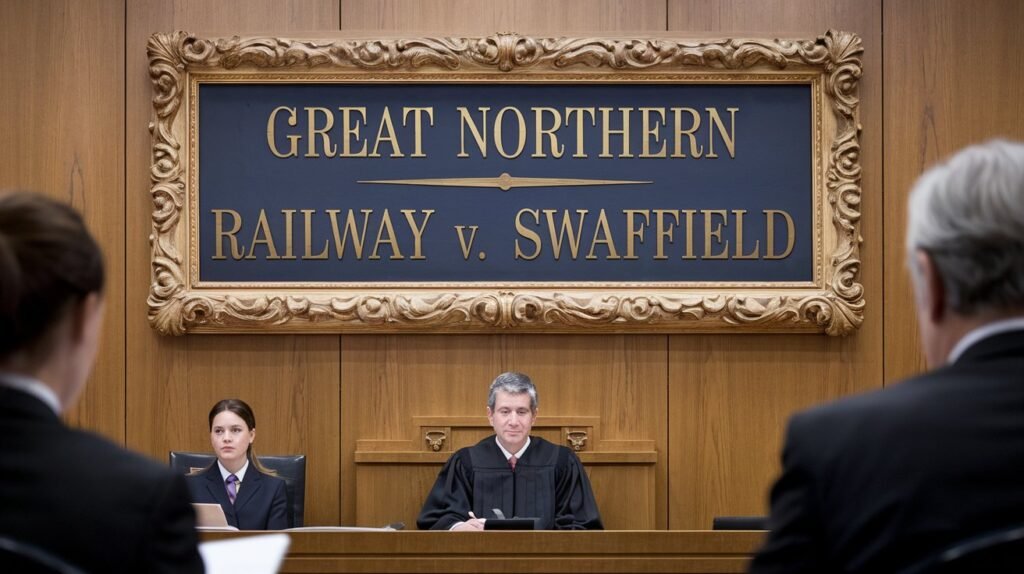Durga Prasad v. Baldeo 1880 (Case Summary)

This case established the principle that in restitution claims, a plaintiff can recover only for services rendered for the benefit of the defendant, not for services rendered at the request of a third party. The Allahabad High Court also examined the necessity of consideration in contract formation under the Indian Contract Act, 1872.
Table of Contents
ToggleFacts of Durga Prasad v. Baldeo
- The plaintiff, Durga Prasad, in 1862, constructed a grain market named Hume Ganj in Etawah, at the Collector’s request, Durga Prasad (the plaintiff) constructed shops and facilitated the establishment of the market at his own expense.
- The defendants, Baldeo and others, used the marketplace for their commercial purposes and benefitted from the infrastructure provided.
- Durga Prasad sought restitution, claiming reimbursement from the defendants for the expenses incurred in constructing the marketplace.
- Subsequently, Durga Prasad sought compensation from the shop occupiers, claiming a right to a commission based on his efforts in establishing the market.
- To resolve ongoing disputes, the Municipal Committee suggested that Durga Prasad formalize an agreement with the shop occupiers.
- An agreement dated June 22, 1875, was produced, purportedly executed by the occupiers, agreeing to pay Durga Prasad six annas of the percentage received by the occupiers.
- Registration of this agreement was refused, as many occupiers denied executing it, and allegations of forgery arose.
Issues framed
- Whether a plaintiff recovers compensation for expenses incurred at the request of a third party if the defendant benefits from them?
- Whether the law of restitution applies when the defendant has not explicitly requested or agreed to pay for the services?
Subordinate Court Judgment
The Court of First Instance ruled in favor of the plaintiff, Durga Prasad.It concluded that the diligence and expenses incurred by the plaintiff constitute valid consideration for the agreement, thereby entitling him to a portion of the fees collected from the market’s occupants. However, upon appeal, the Lower Appellate Court overturned this decision. It determined that the plaintiff’s actions were undertaken to satisfy the Collector’s desires, not at the behest of the defendants (the shop occupants). Consequently, the court found that there was no valid consideration.
Judgment of Durga Prasad v. Baldeo
The Allahabad High Court applied principles of restitution(restoration of wrongful claims) and an agreement to be enforceable as a contract, it must be supported by consideration, which, under Section 2(d) of the Indian Contract Act, 1872, is defined as an act done at the desire of the promisor.
The Allahabad High Court held that for restitution to apply, there must be an express or implied request from the defendant for the plaintiff’s services. In this case, the defendants did not request the construction of the marketplace, nor did they promise to compensate the plaintiff. The benefit derived by the defendants was incidental and did not obligate them to pay for the construction costs.
The Allahabad High Court ruled in favor of the defendants, holding that they were not liable to reimburse Durga Prasad.The principle of restitution cannot apply where the benefit conferred on the defendant is incidental and not requested.





